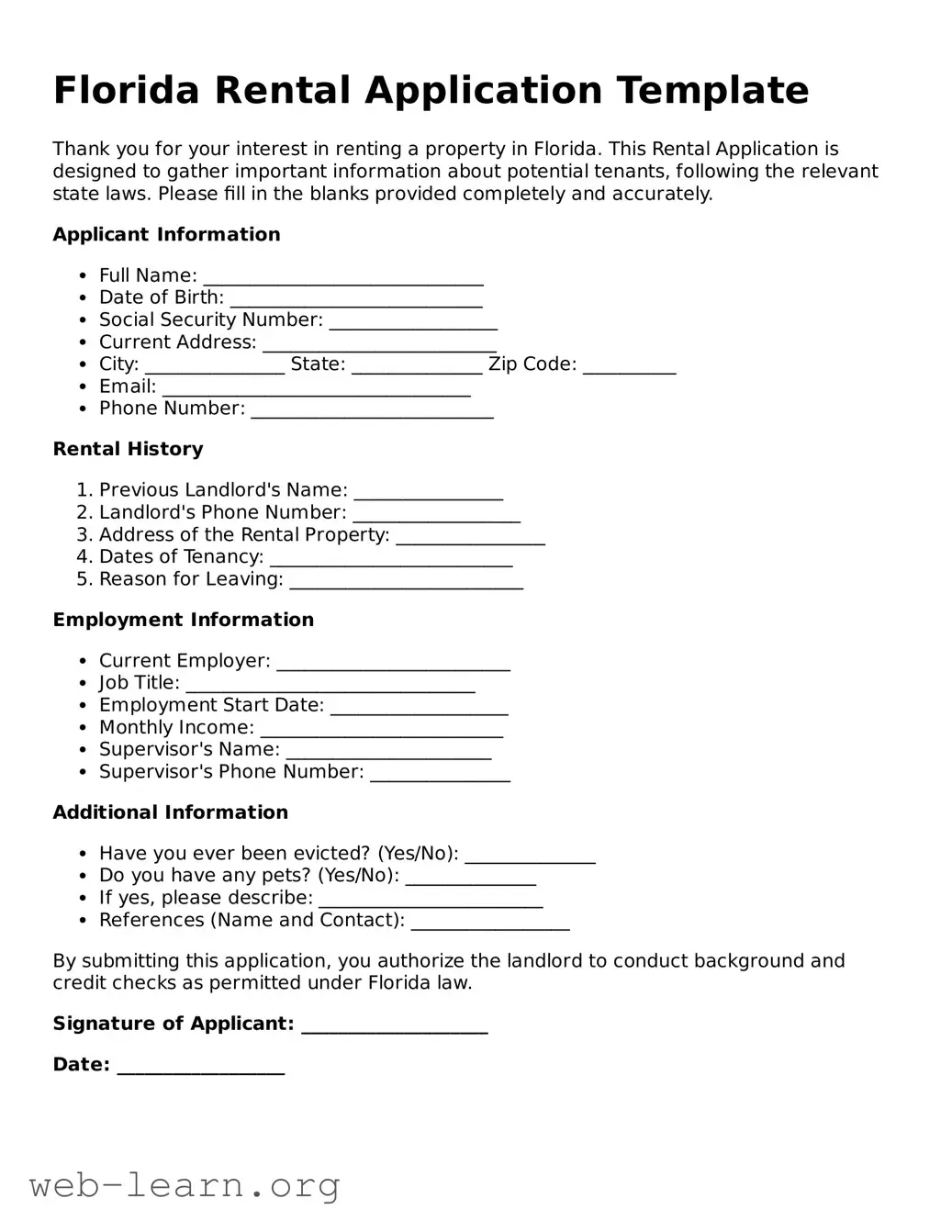Completing a Florida Rental Application form can seem straightforward, but many individuals overlook important details. The first mistake people often make is providing incomplete information. Landlords require comprehensive data to assess tenant suitability. Omitting crucial sections, such as income or employment history, could lead to an application being rejected.
Another common error is failing to verify all the details provided. It’s essential to ensure that names, addresses, and phone numbers are correctly entered. Even a single typo can create confusion or delays. Double-checking for accuracy can save time and avoid unnecessary complications in the application process.
Some applicants forget to disclose relevant rental history. Previous landlords can provide valuable insight into a prospective tenant's behavior. By not mentioning prior rentals, applicants might raise red flags. Landlords are often interested in past experiences, particularly regarding payment punctuality and property upkeep.
Additionally, many individuals neglect to include necessary documentation. Florida may require supporting documents such as pay stubs, tax returns, and ID verification. Leaving these out can lead to delays in processing or outright denials. Applicants should always review the form's requirements and ensure all requested materials are included.
Another mistake frequently made is not fully understanding the application fee. Rental applications usually have a non-refundable fee. Some applicants may not realize this and become upset upon discovering they cannot recover the money if the application is denied. Clarity about fees early in the process can prevent misunderstandings.
Lastly, individuals sometimes overlook timing when submitting their applications. Many rental properties have multiple applicants, and delays can result in lost opportunities. Submitting the application promptly can enhance chances of approval. Staying organized and acting quickly is essential in a competitive rental market.
